Labor’s rapid response is a good start
Albanese and his senior colleagues have made a good start. But history has dealt Australia increasingly difficult cards. We will need to play them with exceptional skill and energy.
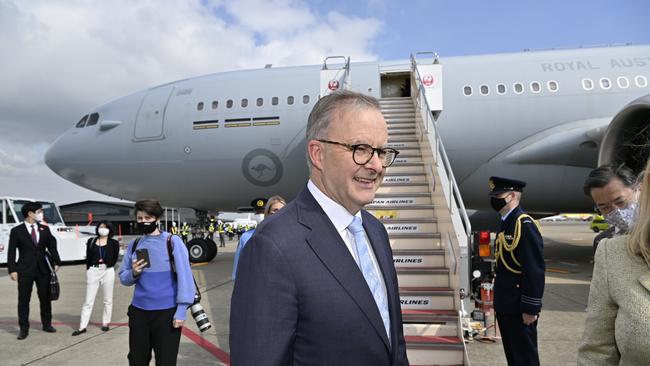
The Prime Minister also reassured Australia’s key allies of his government’s commitment to the nation’s alliances and of his own strategic reliability. And finally, he demonstrated to the Australian people that he is prime ministerial in outlook, word and behaviour and sent the message to electors that he will give the highest priority to national security and strategic continuity. It is a very good thing that he frequently refers to the model of the Hawke government.
That Albanese had the opportunity to do this was a result of a strange gift from outgoing Prime Minister Scott Morrison. Quite bizarrely, Morrison chose to hold the federal election three days before the Quadrilateral Security Dialogue summit was due to convene in Tokyo.
The result was that Albanese and a small group of key ministers – temporarily holding all the government portfolios – was sworn in as the government in record time, so that Albanese and his Foreign Minister Penny Wong could attend the Quad meeting.
This was surely the strangest, and perhaps most consequential, post-election week Australia has seen. Albanese had not even formally secured a parliamentary majority when he was sworn in and went to Tokyo, though he did have some assurances from some crossbenchers.
He and Wong flew to Tokyo on Monday, attended their meetings on Tuesday, and flew home on Wednesday. The next day, Thursday, Wong travelled to Fiji, where she was effectively engaged in the start of a contest of duelling foreign ministers’ tours with the Chinese Foreign Minister Wang Yi.
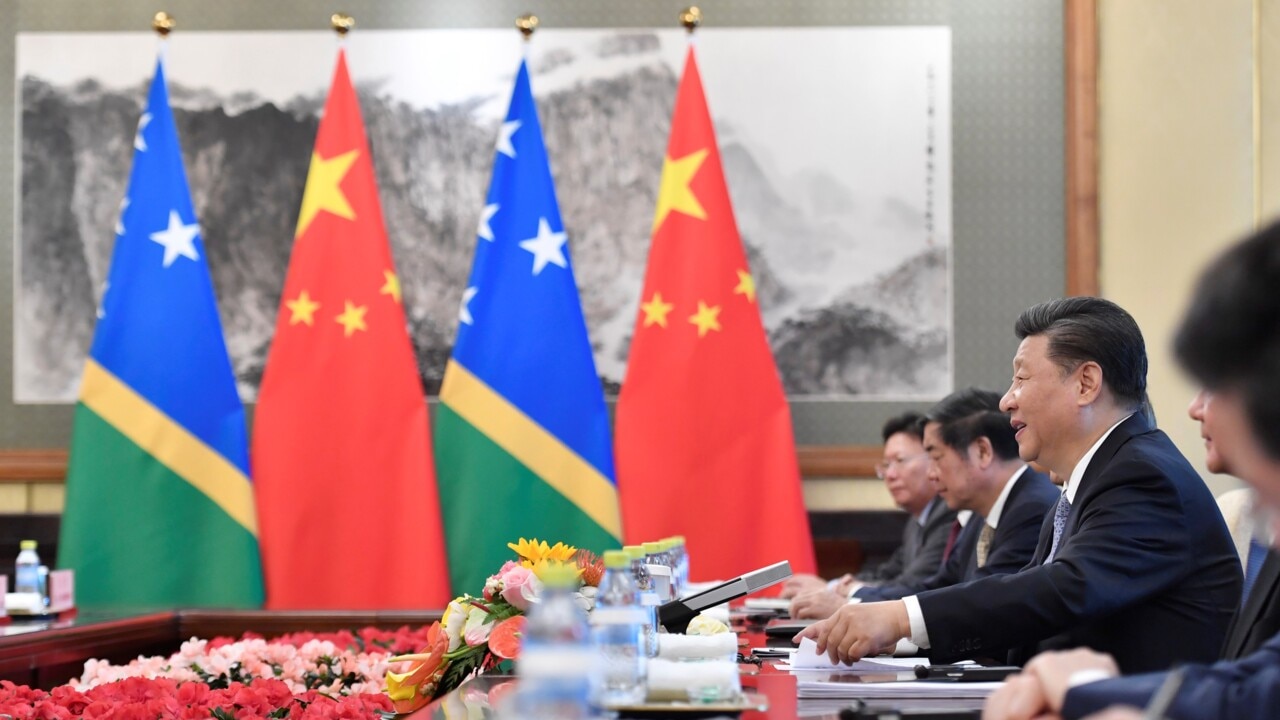
The day Wong arrived in Fiji, Wang arrived in Solomon Islands, as the text of a draft security and infrastructure agreement Beijing would like to reach with numerous South Pacific nations was leaked through Reuters. Wong delivered an important speech to the Pacific Islands Forum in Fiji.
Australians should be under no illusions here. Strategic competition with Beijing is intensifying and the stakes could scarcely be higher. The very future of Australian security is being hotly contested. So far, Albanese’s tone and substance have met the challenge. But this is just the beginning.
Albanese understands the nature of the challenge. I asked him flat out whether Beijing was seeking a military base in the South Pacific. He sensibly enough didn’t answer that question directly – Beijing has formally denied such ambitions – but instead told Inquirer: “China is clearly interested in a far greater presence in the South Pacific. And it’s also clear that that process has been underway for some time. It’s in Australia’s interests to ensure that we remain front and centre as the friends of our Pacific partners, both in security and climate change. And that’s why it was our priority to send Penny Wong to the Pacific.”
Albanese has received a message of congratulations on his election from China’s Premier, Li Keqiang, and he welcomes that. It is in stark contrast to Beijing’s previous two years of relentless ministerial level boycott of Australia.
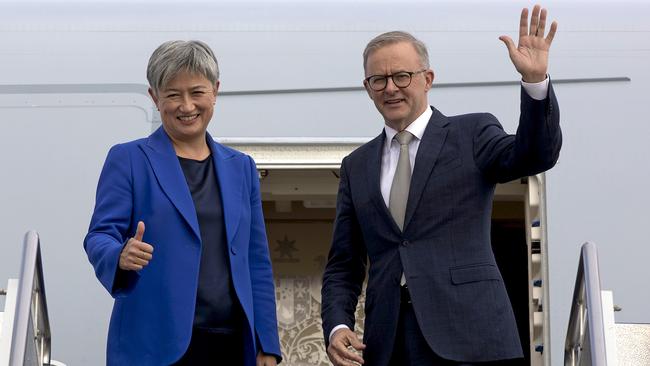
At the same time, Albanese has made it abundantly clear that he sees Beijing’s increased assertiveness and unreasonable actions against Australia as the cause of difficulties in the relationship. While Albanese was in Tokyo, Treasurer Jim Chalmers pointed out that Beijing could signal its interest in improved relations by removing its trade sanctions against various Australian exports.
We can expect Albanese will adopt a calmer tone than that used by Morrison and former defence minister Peter Dutton about China in recent months. But Albanese has made it clear to everyone, to Beijing, to Australia’s allies, and to the Australian public, that his government will not be taking a backward step, offering unilateral actions, accepting unreasonable actions by the Chinese government or sacrificing Australia’s interests.
I asked Albanese how he would respond to Li’s congratulatory message. He said: “Australia won’t compromise on our values but we welcome dialogue. One key is to always put national interests and national security first, and not to put politics first.”
This strange, and for the Albanese government perhaps golden, first week has involved a degree of improvisation and rapid response from the new government. But it also gave effect to substantial preparation, which reflects well on Albanese and his senior colleagues, on Australian politics generally and our security agencies.
While it is weird that Morrison held the election just before the Quad, as soon as it became clear the Liberals could not form government, Morrison facilitated a rapid transfer of power so that Albanese and Wong could go to Tokyo. Similarly, the most powerful public service institutions before the election had a dialogue with Albanese about attending the Quad should he win.
Albanese, Wong and Labor’s Deputy Leader Richard Marles discussed the then looming Quad summit in their meetings, as Opposition leaders, with Quad partners at the Melbourne Quad foreign ministers’ meeting in February. These talks involved especially US Secretary of State, Antony Blinken, and Biden’s Indo-Pacific Co-ordinator Kurt Campbell.
The Tokyo Quad meeting was dominated by three issues: the ongoing Russian war with Ukraine; the continued increased assertiveness of Beijing in the region and what effect the Ukraine conflict would have on this, and the politics and policy questions surrounding climate change.
Biden had no chemistry at all with Morrison. The two men conducted business amicably enough. Both are deeply committed to the US/Australia alliance and the relationship was in no peril under their joint leadership. But US officials have never hidden the fact that Biden was disappointed with Australian climate change policy, especially the refusal to increase the 2030 targets, and the vagueness of Canberra’s plans to get to net zero by 2050. Biden also felt he had been misled by Australians to expect a more forward leaning position.
Biden also felt that he had been misled, whether by Morrison or by his own senior officials, about the likely reaction of France to the cancellation of the French submarine deal due to the AUKUS agreement.
In any event, Biden was extremely keen to renew a warm relationship with Albanese, with whose domestic politics and personal story he identifies. Both the Indian PM, Narendra Modi, and the Japanese leader, Fumio Kishida, also went out their way to welcome Albanese.
Again, paradoxically, Albanese may owe some of the warmth of that welcome to Morrison. In the last desperate months of campaigning, the Morrison government had sought to cast Albanese as weak on China and weak on security. All the Quad members had their own more realistic assessments from their embassies and other sources. But they were keen to get the measure of the new guy and delighted to hear him reaffirm core Australian strategic doctrine.
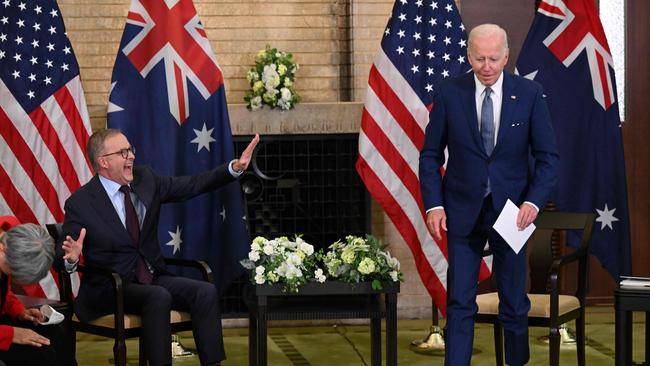
Also, given that Labor was once hostile to the Quad, they wanted to see if Albanese was really committed to the body. His and Wong’s personal effort in getting to Tokyo registered.
All four leaders agreed to a paragraph in their joint Quad summit statement, which said: “We welcome the new Australian Government’s commitment to stronger action on climate change.”
Even Australians who disagree with Labor’s climate change policy can appreciate its diplomatic benefits. Many Australian think Labor’s targets unrealistic or likely to be too costly. However, in one of the Prime Ministerial debates, Scott Morrison said he believed the Coalition’s policies would achieve a reduction in emissions of 35 per cent by 2030. Labor has promised 43 per cent.
Questions around the efficacy and cost of these targets is a perfectly legitimate debate for Australians to have. However, the Albanese government would be insane not to achieve every diplomatic gain they can from having such a target.
Biden had warmly congratulated Albanese in a phone call on Sunday night, the day after the election. It is normal for a president to congratulate an incoming Prime Minister but it had often been notable how slow Biden was to ring Morrison when occasions suggested it should be done. Biden in that call invited Albanese to visit Washington, and this is sure to happen no later than September. Albanese’s climate policies may not be so helpful with any Republican successor to Biden, but they work with the current president, and they work with the EU.
The other place they need to work diplomatically and politically is the South Pacific, and that was part of the message Wong took to Fiji.
Albanese will make his next overseas trip, in June, to Indonesia. He will visit Papua New Guinea as soon as practical after its national elections. And he and Wong will attend the South Pacific Forum meeting in Fiji in July.
This is a substantial program of regional travel and the sequence and priorities are right – Tokyo, Indonesia, Washington, Papua New Guinea. Albanese will next year host the next Quad summit. If Biden, Modi and Kishida come to Australia for a Quad summit that will be one of the most significant international meetings ever held in Australia.
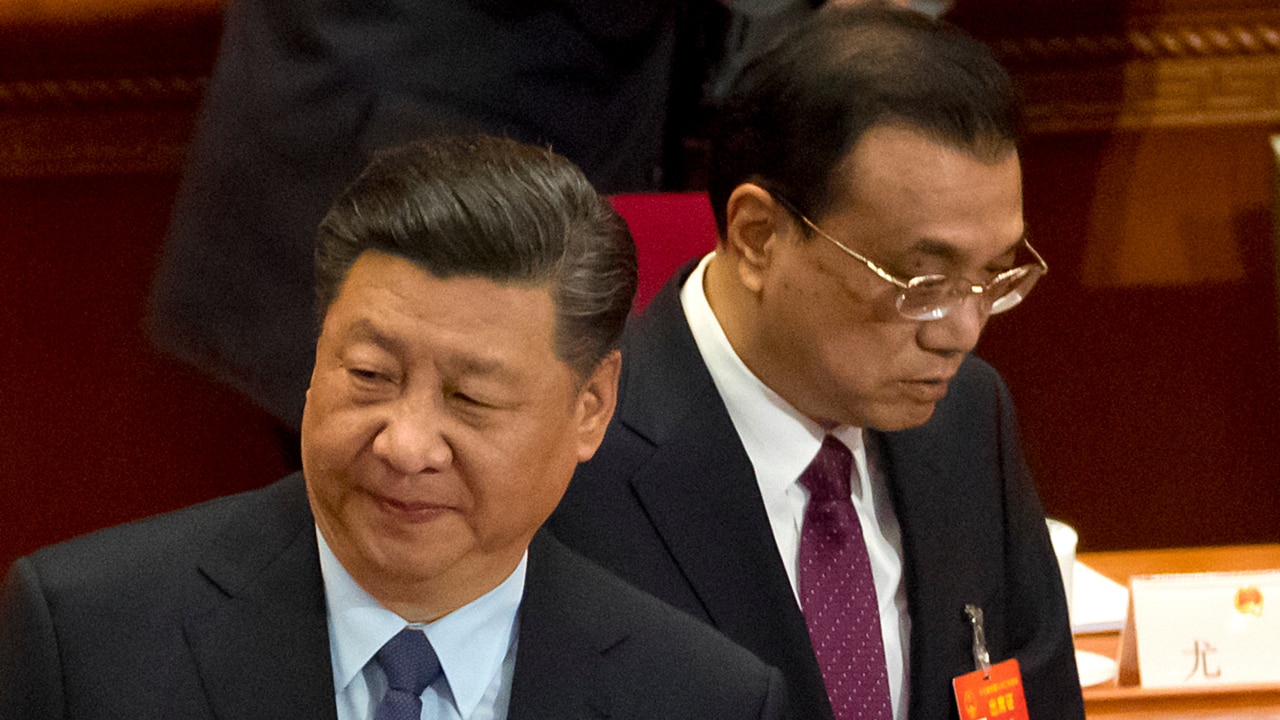
Albanese and his party also used the long hours of the flight to and from Tokyo. He not only had substantial phone conversations with other leaders including Boris Johnson. But he took the Defence Department Secretary Greg Moriarty and the director of the Office of National Intelligence, Andrew Shearer, with him and they were able to provide extensive security briefings for Albanese and Wong.
However, despite the good start from the Albanese government, the security challenges confronting Australia are enormous. There is no guarantee at all that Australia, under any government, can successfully navigate these challenges.
One key requirement is for the Albanese government to urgently address the need for Australia to acquire genuine defence capabilities, especially asymmetric capabilities around missiles and drones, which will give us fire power and deterrent credibility, over the next five to ten years.
However, the most urgent challenge in the immediate future is the South Pacific. China’s foreign minister, Wang Yi, is in the midst of an eight-nation tour of the South Pacific, having offered ten South Pacific nations a deal involving security co-operation, policing and cyber skills, trade, investment and infrastructure.
This is a truly historic trip by Wang. It is unprecedented and makes no sense except in the context of Beijing’s geo-strategic ambitions, and its strategic competition first with the US, and secondly with Australia.
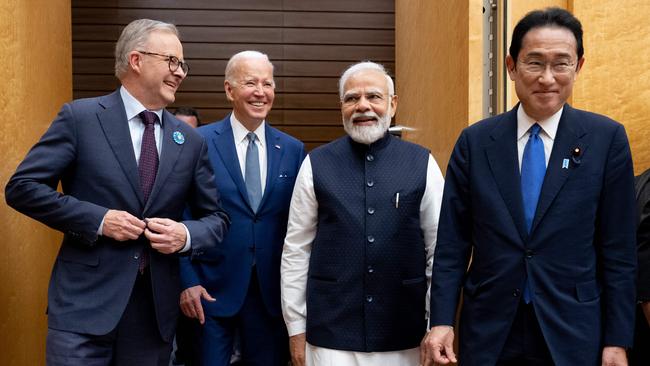
I don’t believe any US Secretary of State has ever made a trip visiting eight South Pacific nations. Blinken visited Fiji for a few hours on his way home from the Quad meeting in Australia in February. It was very good that he made this visit. On the whole, the Biden administration has been good in Asia and in the South Pacific.
It has recently hosted an ASEAN/US summit in Washington and Biden made extensive visits to South Korea and Japan. And Similarly the US is reopening an embassy in Solomon Islands.
Obviously, given his age, Biden doesn’t travel as much as some previous presidents. But Blinken’s visit to Fiji, welcome as it was, was the first by a US Secretary of State in 36 years.
That, frankly, is a shameful record. It is a record of policy dereliction. The US lost tens of thousands of troops in the Pacific War. It fought some of its fiercest battles in and around Solomon Islands. By contrast, Beijing is a relative newcomer to the South Pacific. But its foreign minister can find time for such an extensive tour and it can offer substantial economic and security resources to regional governments.
A Chinese base in the South Pacific, still worse a series of Chinese bases, would be a devastating blow to Australian security. Such bases would give Beijing the ability to threaten Australia directly in a multitude of ways, as well as allowing it to hinder, constrict and threaten the movement of US forces.
Thus Wong’s early visit to Fiji, and the promise of much more energetic foreign minister level diplomacy, is praiseworthy but no more than is necessary.
Albanese and Wong also promise the South Pacific a more than $500m increase in aid over four years, as well as improvements to the labour migration scheme and more places for permanent migrants to Australia from the Pacific.
This is all useful policy. Wong’s speech was certainly what South Pacific leaders wanted to hear. She said in part: “We will listen, we will hear you.”
She castigated previous Australian governments, saying: “Under past governments Australia has neglected its responsibility to act on climate change, ignoring the calls of our Pacific family to act.”
Australians might take some of this with more than a grain of salt, but if an Australian government has a policy which South Pacific leaders want it to have, then it would be crazy not to highlight it.
Wong plans extensive visits across the South Pacific.
However, it’s still not clear that even all this is enough really to counter Beijing’s huge new effort in our region.
One challenge an Albanese government will face is the epic ignorance of these issues among newly powerful Green and teal politicians. The frankly bizarre comments of Greens Senator Mehreen Faruqi on the ABC’s Q+A program, in which she characterised Australian concern at Beijing’s growing presence in the South Pacific as akin to neo-colonialism, amply demonstrate the point.
It may be that an Albanese government will need to think much more creatively and expansively about potential Australian policy to the South Pacific if we are to safeguard our interests. There may be room for Australian joint naval and other military installations, in co-operation with host governments, in the region. And Canberra must surely explore even greater economic integration with the South Pacific nations.
Albanese and his senior colleagues have made a good start. But history has dealt Australia increasingly difficult cards. We will need to play them with exceptional skill and energy.



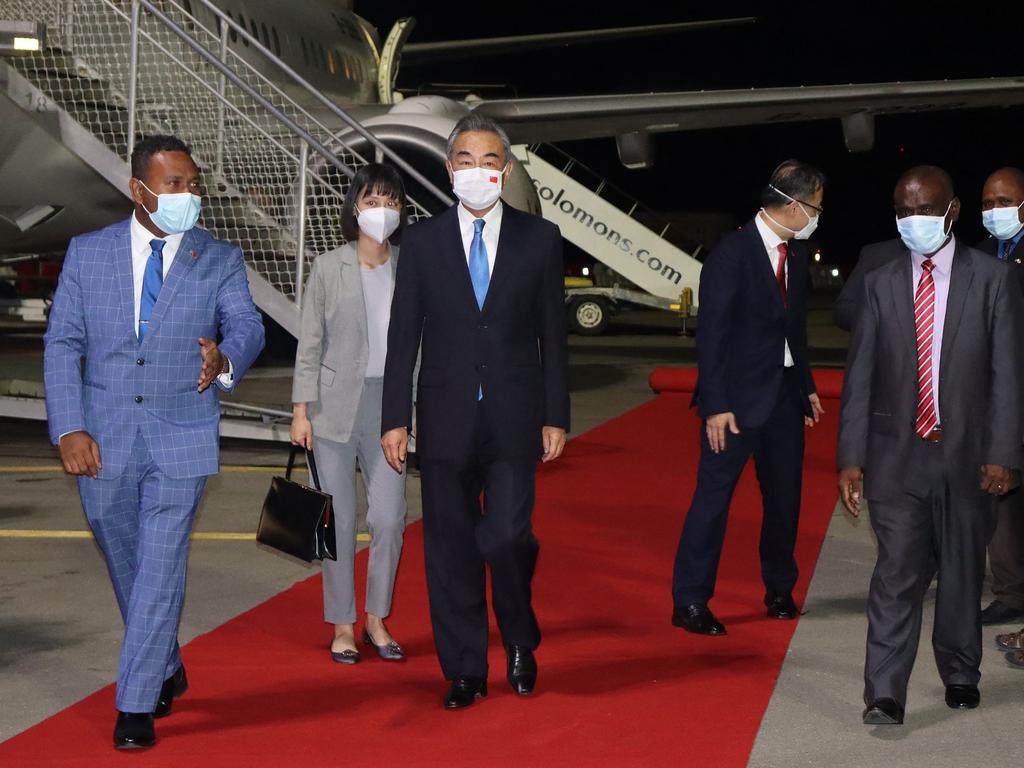

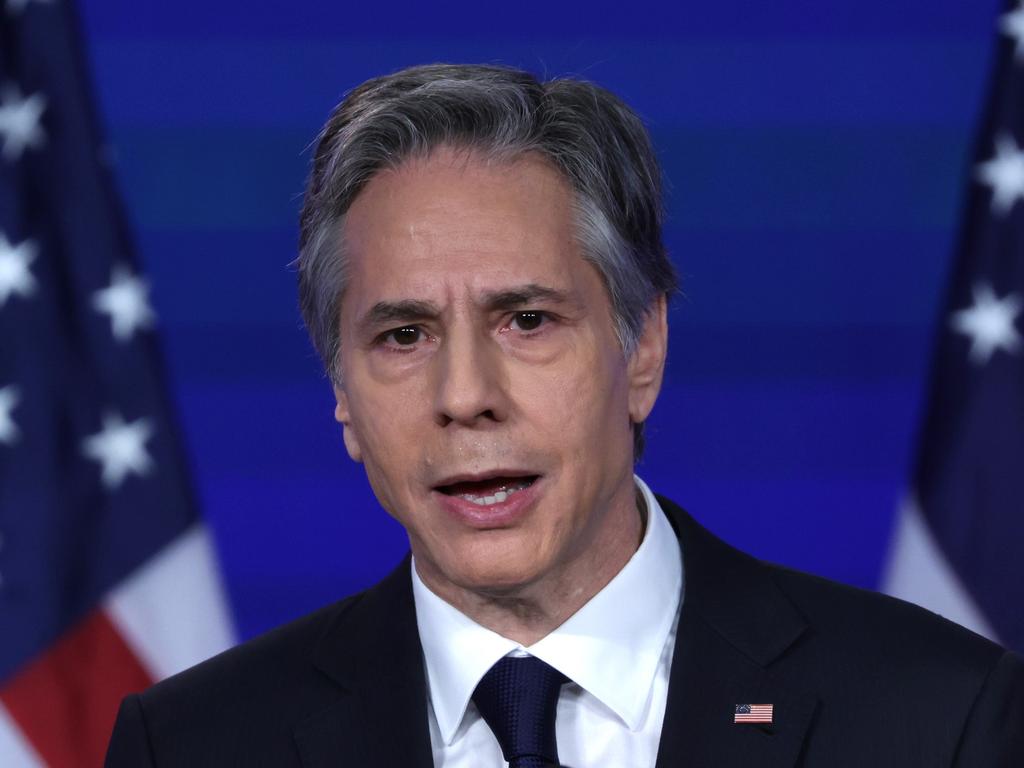
Anthony Albanese joined strategic battle with China in the South Pacific this week.